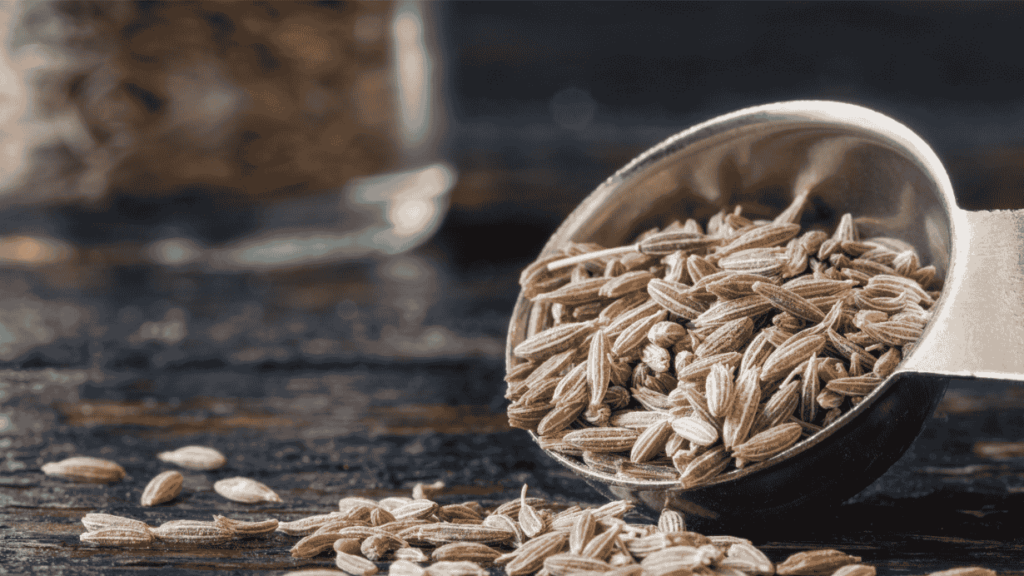Fresh Cumin Seeds





Cumin Seeds
Menu

| Heading | Information |
|---|---|
| Cumin Seeds | Earthy spice essential for curries, stews, and Middle Eastern spice blends. |
| Producing Countries | India, Egypt |
| Producing Benefits | Rich in Antioxidants: Cumin seeds are high in antioxidants, which help combat oxidative stress and protect cells from damage. Improved Digestion: Cumin has long been used to help with digestion. It promotes the secretion of digestive enzymes and may help alleviate indigestion, bloating, and gas. Supports Immune Health: The antioxidants, vitamins (like vitamin C), and minerals (like iron) in cumin seeds support a healthy immune system. Anti-inflammatory Properties: Cumin contains compounds that help reduce inflammation, which may provide relief from conditions like arthritis and other inflammatory diseases. Blood Sugar Control: Some studies suggest cumin seeds may help regulate blood sugar levels, making them beneficial for people with diabetes. Weight Management: Cumin has been linked to weight loss and fat reduction, potentially due to its ability to improve digestion and boost metabolism. Liver Health: Cumin seeds may help detoxify the liver and improve its overall function due to their diuretic and antioxidant properties. |
| Ingredients | Cumin seeds come from the Cuminum cyminum plant, a member of the parsley family. They are typically used in their dried form and may be sold whole or ground. Possible Additives: Ground cumin may sometimes contain anti-caking agents or preservatives, but whole cumin seeds typically contain no additives. |
| Allergen | Potential Allergies: Cumin seeds are generally safe for most individuals, but people with allergies to other spices (like coriander, fennel, or caraway) may experience allergic reactions. Cross-Contamination: Cumin seeds are typically processed in facilities that may also handle other spices or allergens, increasing the risk of cross-contamination. |
| Storage | Cool, Dry Place: Store cumin seeds in a cool, dry place, away from heat and direct sunlight, to preserve their flavor and potency. Airtight Container: Once opened, cumin seeds should be kept in an airtight container to protect them from moisture and air exposure. Whole vs. Ground: Whole cumin seeds retain their flavor longer than ground cumin. If you have ground cumin, it’s best to use it within a few months for the freshest flavor. Refrigeration: Cumin seeds don’t require refrigeration but can be stored in the fridge if you live in a hot, humid climate to extend their shelf life. |
| Nutrition Facts | Nutrition Facts (per 1 teaspoon or ~2.1 grams of cumin seeds): Calories: Approximately 8 kcal Total Fat: 0.5 g Saturated Fat: 0.03 g Sodium: 0 mg Total Carbohydrates: 0.9 g Dietary Fiber: 0.4 g Sugars: 0.1 g Protein: 0.4 g Vitamins and Minerals: Vitamin C: 0.2 mg Vitamin A: 0.1 IU Calcium: 10 mg Iron: 0.3 mg Magnesium: 4 mg Phosphorus: 6 mg Potassium: 17 mg Manganese: 0.1 mg |


